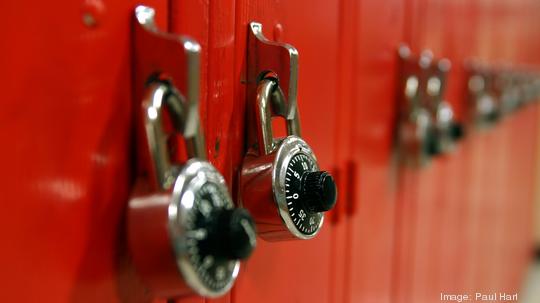
The founders of a lockdown system designed to automatically barricade doors in the event of a school shooting now have proprietary rights over their technology.
On Monday, BarricAid was granted a patent on its technology that had been pending since September 2019.
BarricAid was founded in 2018 by Roland Trout, of Lexington; Neal Davis, of Charlotte; and Michael Pittman, of Richmond, Virginia, in hopes of developing a more effective solution to protect students and teachers during an active shooter situation. The company's remote technology uses a direct cellular connection to secure rooms within a school, college campus, church or any place an active-shooter situation could occur.
Trout said the patent will allow BarricAid to do a couple of things. First, he said, the company now has complete rights to the intellectual property, which will increase its market position. Because the system uses cellular data to activate a lockdown, being one-of-a-kind in a growing market is crucial to the company's ability to scale.
"In the next few years, you'll see 5G take over, and everything will be cellular-based WiFi," he said. "We've created this system that allows us to lock down buildings regardless of geographical proximity. It gives us either a lock or a barricade controlled through the cellular network that can be remotely engaged through multiple doors simultaneously."
The second piece is the ability to license the technology to others.
"We understand there is a constant need to defend the patent, so we're open to somebody coming along and potentially buying that intellectual property and licensing it back to us," Trout said.
Trout said the BarricAid team is "full steam ahead" in development of the system and is planning to have it ready for launch in late summer.
"We’ve had a lot of conversations with university systems across the state and country, but it’s still hard, until we get the first one out there, to convince people to be the first," he said. "We don’t want to come across as opportunistic or insensitive to [school shooting] victims’ families, so we’re really trying to get the word out of what we’re doing before the next time it happens."




